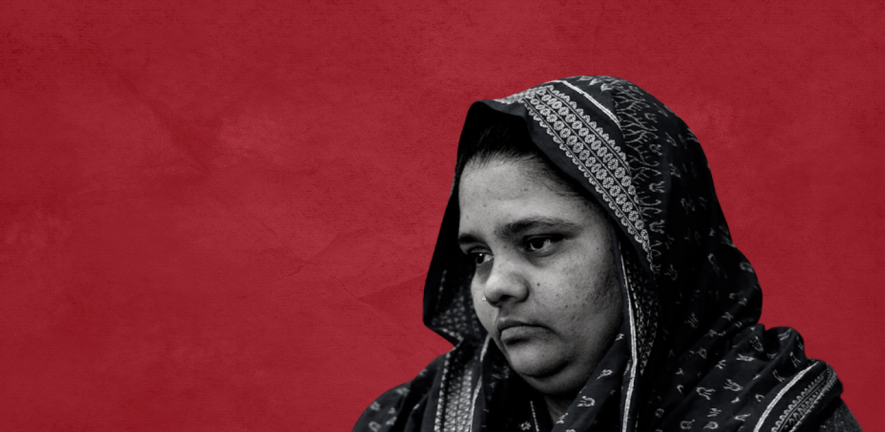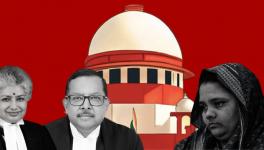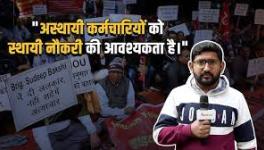Some Convicts are ‘privileged’, Justice Nagarathna Observes while Hearing Bilkis Bano Case

Today, the Supreme Court continued hearing arguments by one of the 11 persons convicted of gangraping Bilkis Bano and murdering her family during the 2002 Gujarat pogrom.
A division Bench comprising Justices B.V. Nagarathna and Ujjal Bhuyan is hearing a batch of petitions against the Gujarat government’s August 2022 decision to remit the sentences of the 11 convicts.
Senior advocate Sidharth Luthra, appearing for Ramesh Chandana, one of the convicts, told the court that the remission of his client’s sentence was in line with the State’s reformative approach to sentencing.
Luthra argued that since his client had been given life sentence, and not death penalty, the convicting court had consciously kept the possibility of reformation open.
He asserted that only two “real issues” remain to be considered in the matter: “Whether the remission policy was rightly exercised, and whether the decision delivered through that policy is capable of judicial review.”
Are all convicts equal?
In the previous hearing on August 31, Luthra had informed the Bench that the fine imposed by the convicting court, the sessions court in Mumbai, has been paid. The said fine was imposed in 2008.
Payment was undertaken after certain petitioners argued that owing to the non-payment of fines, the remission was ‘illegal’ since the convicts were yet to serve the default sentence for the non-payment.
In the hearing on August 31, the Bench had questioned the need for payment of fine at this stage.
Today, Luthra argued that imprisonment in default of fine is not a ‘sentence’ in the traditional sense of the term. “It is a penalty which a person incurs on non-payment of fine,” he said.
Justice Nagarathna averred the petitioners’ contention that the aspect of non-payment of fine was not considered by the state government before release.
But Luthra contended that non-payment of fine is not supposed to be a consideration before a state government in deciding the remission of a convict.
“The sentence for default of fine is not the subject matter for remission and it cannot be because it stands on a different footing. Therefore, it will have no impact on the merit or legality of the remission Order
“Non-payment is not fatal to the remission Order because what is being done away with is the substantive sentence or reduction of the substantive sentence.”
Justice Bhuyan, repeating a question that he had asked in a previous hearing on whether the convicts had shown any remorse for their crimes, asked Luthra, “Will it (the non-payment of fine) not come within the meaning of conduct of the convict?”
While deciding the convicts’ application for remission under the 1992 Gujarat remission policy, their conduct since conviction was examined by the state government. It is not clear whether the non-payment of fine was considered during this examination.
Luthra then sought to argue that his client did not possess the financial ability to pay the fine.
“[Fifteen] years in custody. There has to be an ability to pay … I must tell your Lordships the reality. The issue is this: (life in jail) is a completely cut off life. You are away [from home]. You are reduced to labour. You have no sources [of income],” Luthra said.
“But in this case, they had the privilege of coming out for days together. Several days, several times!” Justice Nagarathna observed sharply.
During their period of incarceration, the 11 convicts were out of jail for more than 1,000 days each— on parole, furlough and temporary bail.
Luthra agreed with Justice Nagarathna, but stated that the convicts were out only during the Covid pandemic.
“I will show that. The record is here. So I will show that,” Luthra reassured the Bench.
“But there are some convicts who are privileged, no? As opposed to others,” Justice Nagarathna rejoined.
Luthra, seeking to clear the air, stated, “The point I seek to clarify is, every convict—”
“Is not the same,” Justice Nagarathna retorted, completing his sentence, leading to a short burst of laughter in the court.
Luthra, attempting to turn the situation around, replied, “Your Ladyship has taken the words out of my mouth.”
“Every convict is not the same and every convict must be looked at with the outlook of reformation and with a liberal approach,” Luthra concluded.
The Bench has posted the matter for further hearing on September 20.
The author is a Staff Writer with The Leaflet, who likes to read magazines and watch documentaries (after work). Ask him for recommendations at [email protected]
Get the latest reports & analysis with people's perspective on Protests, movements & deep analytical videos, discussions of the current affairs in your Telegram app. Subscribe to NewsClick's Telegram channel & get Real-Time updates on stories, as they get published on our website.



















